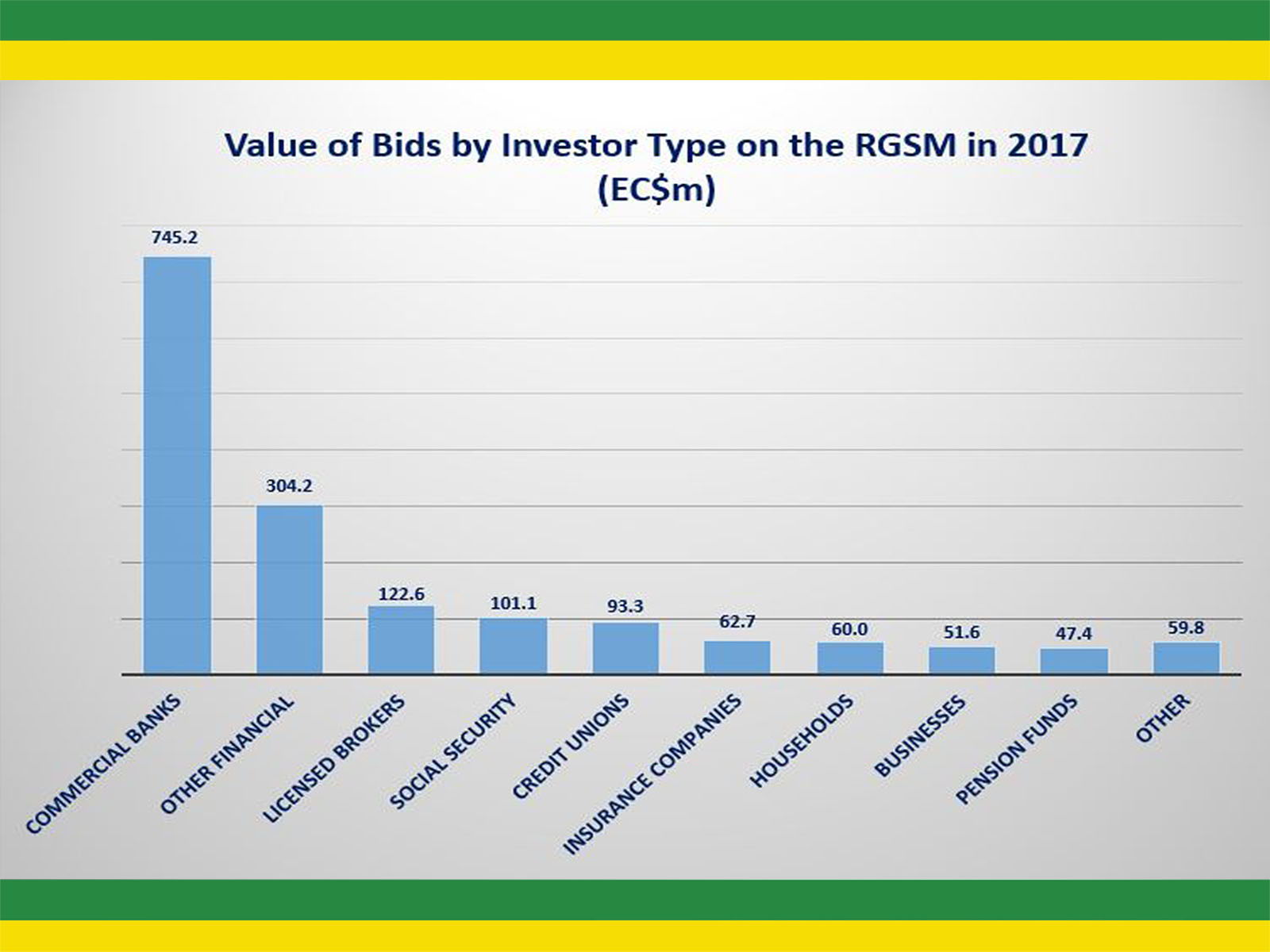Regional Debt Coordinating Committee Takes Steps to Improve Transparency on Regional Government Securities Market (RGSM)
ECCB an Institution of the OECS
The Regional Debt Coordinating Committee (RDCC) has advanced its efforts to increase transparency and improve relationship among the stakeholders of the Regional Government Securities Market (RGSM).
The RDCC, which comprises the financial secretaries of the eight ECCU countries and the Governor of the ECCB, has direct oversight of the RGSM. The RGSM is a regional market for the issuance of debt instruments of the member states of the ECCU. Currently, five ECCU governments issue Treasury-bills and bonds with varying maturities on the market.
At its meeting held on 13 April, the RDCC approved a work programme for 2018/2019, which focuses on the development of an Investor Relations Programme (IRP) for the participating governments on the RGSM. The programme will facilitate dialogue between the governments, licensed brokers and investors on a continuous basis. The objective of the IRP is to expand the number of persons participating in the RGSM thereby enhancing the efficiency of the operations of the markets for government securities.
The RDCC, with the support of the ECCB, also committed to the development of an ECCU public debt webpage, which will provide timely pertinent information to market participants. The webpage is scheduled to be launched by December and is aimed at tracking member governments fiscal and debt sustainability and sharing information with the public under its strategic plan.
Dr Aidan Harrigan, Permanent Secretary in the Ministry of Finance of Anguilla, is the current chair of the RDCC.
